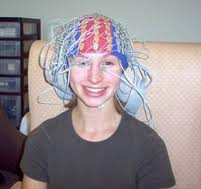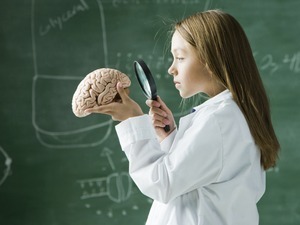Posts Tagged ‘autism’
Will EEG Data Analysis Help Diagnose Autism?
Computer analysis of EEG patterns suggests a potential diagnostic test for autism (Eureka Science News): “Widely available EEG testing can distinguish children with autism from neurotypical children as early as age 2, finds a study from Boston Children’s Hospital. The study is the largest, most rigorous study to date to investigate EEGs as a potential diagnostic…
Read MoreWhy Being Young for Grade Increases Odds of ADHD Diagnosis and Stimulant Medication
ADHD is the most commonly diagnosed neurobehavioral disorder in children and substantial evidence indicates that biological factors play an important role in its development. For example, although the exact mechanism by which genetic factors convey increased risk for ADHD remains unclear, the importance of genetic transmission has been documented in a number of published studies.…
Read MoreBrain Training for Babies: Hope, Hype, Both?
Training the brain is possible because of neuroplasticity. Our daily experiences can trigger neuroplastic changes in the brain, such as the growth of new brain cells (neurons) and new connections (synapses) between neurons. Plasticity is observed at all ages but is at its peak during brain development, as a baby and then a child learns…
Read MoreDigital Games for Physical, Cognitive and Behavioral Health
The Robert Wood Johnson Foundation (RWJF) just announced more than $1.85 million in grants for research teams to study how digital games can improve players’ health behaviors and outcomes (both brain-based and behavioral). The press release: Nine Leading Research Teams Selected to Study How Digital Games Improve Players’ Health “Digital games are interactive and experiential,…
Read MoreReport: The State of the Brain Fitness/ Training Software Market 2008
After many months of work (and we hope many new neurons and stronger synapses in our brains), we have just released our inaugural report on the emerging Brain Fitness Software Market, the first to define the brain fitness and training software market and analyze the size and trends of its four customer segments. We estimate…
Read MoreEncephalon: Briefing the Next US President on Neuroscience & Psychology
Dear Mr or Mrs Next US President, We are glad to welcome you to our blog carnival. After a short hiatus, Encephalon is back and gathering steam. We have prepared this “revival” edition just for you, so you can be well informed and impress us all during the upcoming Sciencedebate 2008. Without further ado, let’s…
Read More


